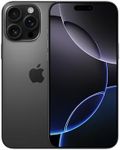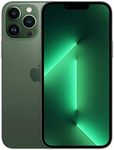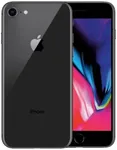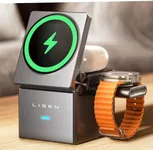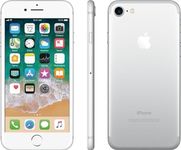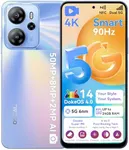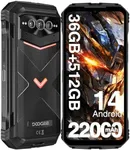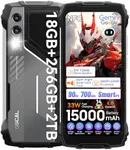Buying Guide for the Best Apple Iphones
Choosing the right iPhone can be a bit overwhelming given the variety of models available. However, by focusing on a few key specifications, you can find the perfect iPhone that suits your needs. It's important to consider what you primarily use your phone for, such as photography, gaming, or general use, and then match those needs with the right features. Here are some key specs to consider when picking an iPhone.Display SizeThe display size of an iPhone is measured diagonally in inches and determines how large the screen is. This is important because it affects how comfortable the phone is to hold and how easy it is to view content. Smaller displays (around 5.4 to 6.1 inches) are more compact and easier to handle with one hand, making them ideal for users who prioritize portability. Larger displays (6.1 to 6.7 inches) provide a more immersive experience for watching videos, playing games, or multitasking, but they can be bulkier. Choose a display size based on your preference for portability versus screen real estate.
Camera QualityThe camera quality of an iPhone is crucial for users who love taking photos and videos. iPhones typically come with multiple cameras, including wide, ultra-wide, and telephoto lenses. Higher-end models offer advanced features like Night mode, Deep Fusion, and ProRAW for professional-grade photography. If you are a casual user, a model with a good primary camera will suffice. However, if you are a photography enthusiast or content creator, look for models with multiple lenses and advanced camera features to enhance your photo and video quality.
Battery LifeBattery life indicates how long an iPhone can last on a single charge. This is important for users who are frequently on the go and rely on their phone throughout the day. Battery life can vary significantly between models, with some offering up to 20 hours of talk time or more. If you use your phone heavily for tasks like gaming, streaming, or navigation, opt for a model with a longer battery life. For lighter use, a standard battery life should be sufficient.
Storage CapacityStorage capacity refers to the amount of internal space available for apps, photos, videos, and other data. iPhones come with various storage options, typically ranging from 64GB to 1TB. More storage is important if you plan to store a lot of media files, download many apps, or keep large amounts of data on your phone. If you use cloud services or don't store much data locally, a lower storage capacity may be adequate. Choose a storage size based on your data storage habits and future needs.
Processor PerformanceThe processor, or chip, in an iPhone determines how fast and efficiently it can run apps and perform tasks. Newer models come with more advanced processors that offer better performance and energy efficiency. This is important for users who run demanding applications, play high-end games, or multitask frequently. If you need a phone for basic tasks like browsing and social media, an older model with a less powerful processor will still perform well. For power users, a model with the latest processor is recommended.
5G Connectivity5G connectivity allows an iPhone to access faster internet speeds and improved network reliability. This is important for users who stream high-definition content, play online games, or need fast download and upload speeds. While 5G is becoming more widespread, it may not be available in all areas. If you live in an area with good 5G coverage or plan to keep your phone for several years, choosing a model with 5G support can future-proof your device. For those in areas with limited 5G availability, 4G LTE models are still a viable option.

